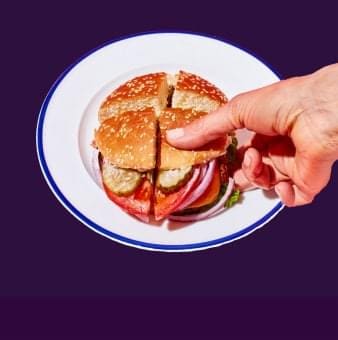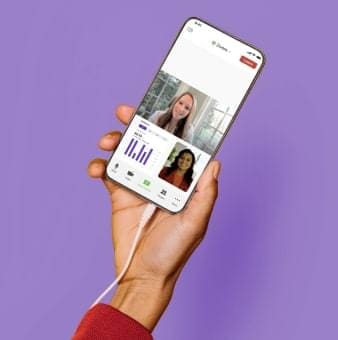New Research Study Uncovers Five Roadblocks That Could Be Preventing Employees From Engaging in Employer-Sponsored Weight Management Programs
Naturally Slim Findings Reveal Employee Insights and Perspectives on Motivations, Misconceptions, and Expectations for Weight Management Programs
DALLAS, TX — (March 25, 2021) Naturally Slim® (NS), a skills-based digital behavioral health company focused on whole health weight management and diabetes prevention within the employer-sponsored space, today released the findings of its new Consumer Research Study, Navigating the Diet Culture Paradox: How Consumer Misconceptions Increase Healthcare Claims Costs, to help employers understand how they can leverage consumer insights to break down potential barriers that are keeping employees from being engaged in solutions that can make the biggest impact on their health.
Employers know that employees are their greatest asset and investing in employee wellbeing can lead to more engaged, healthy, and productive people. To keep their organization thriving, leaders need benefits solutions they can rely on—programs that prioritize outcomes and engagement and meet people where they are, both mentally and physically. And, coming out of 2020, there has been a growing emphasis on the importance of weight management for disease prevention and immunity support. The problem is many programs can over-promise and under-deliver. With hundreds of solutions on the market promising a quick fix, there’s a gap between what consumers expect and want in a weight loss program versus what they need to produce long-lasting results.
NS recently polled 1,000 U.S. consumers to get their perspective on motivations, misconceptions, and expectations regarding weight management programs and identified five (5) paradoxes that may be preventing your employees from becoming their best and most healthy selves.
“As HR leaders, we know that truly understanding our people means more than analyzing biometric screenings and claims reports. It means getting to know their mental and physical needs, motivations and opinions, cultures, and lifestyles–inside and outside of the workplace. It’s important to realize that organizational culture and health goes beyond claims reports and requires a more holistic view in order to build a benefits strategy that drives higher engagement, lowers claims costs, and makes a true impact,” said Emily Taylor, Chief Financial Officer and Chief Human Resources Officer, NS.
Paradox #1: Consumers don’t think diets will work for them
There are thousands of programs out there, and consumers have seen these programs and diets work for others and feel like a failure when it doesn’t work for them. But the problem isn’t consumers; it’s their options. If those programs don’t align with and consider diverse cultures, lifestyles, and overall health improvement goals, they’ll only be successful for a very narrow portion of the population. NS’ new research found that 57.5% of respondents who had previously tried a program reported mixed experiences. The most popular programs were among the least successful in teaching members life-long healthy habits. Moreover, most programs lost half or more of their members within three months.
Paradox #2: People want long-lasting results, but they want it fast
Sustainability was top of the list for what people want in a program closely followed by seeing quick results—creating a bit of a conundrum as they don’t usually go hand-in-hand. Sixty-nine percent (69%) of consumers reported wanting a program they can maintain, yet forty-seven percent (47%) of respondents said that one of the top qualities they want in a weight loss program is the ability to lose weight quickly. Consumers have unrealistic expectations and may not know what is most impactful for sustainable weight loss—leading to frustration when they don’t see immediate results or, conversely, when the weight comes back.
Paradox #3: It’s not all about looking better; people just want to feel better
In society today, the common belief is that people want to lose weight to look better, but in reality, people are tired of the burden of pain and illness that often comes with obesity. What they really want is to feel better. In fact, “looking better” came in 5th. The top motivational factors for people to begin a weight loss program, outlined in the full report, included feeling better (81%), having more energy (73%), living longer (68%), and feeling more self-confident (59%). Additionally, more than a third (36%) of the survey respondents said losing weight was one of their top New Year’s resolutions—ahead of exercising more, saving money, and getting organized.
Paradox #4: People think behavior change programs are effective but rank certain pillars of behavior change among the least important
There’s a disconnect in what most impacts weight loss. Consumers have been conditioned to think certain factors—such as weight loss—are a crucial ingredient to weight loss success. However, exercise has little impact on weight loss compared to other factors. NS’ survey found that consumers thought that exercising (48%), sleeping well (44%), eating lots of vegetables (43%), avoiding sugar (40%), and managing stress (39%) are extremely important factors for weight loss. On the other hand, “eating only when hungry”—a pillar of behavior-based weight loss programs—wasn’t considered to be important for most consumers. In fact, only 22% of respondents categorized it as an extremely important factor for weight loss.
Paradox #5: People think behavioral programs seem too good to be true
Though consumers are highly interested in a solution based on behavioral science, they also thought that behavior change programs seemed “too good to be true”—signaling that diet culture is deeply rooted in most peoples’ mindsets, although evidence suggests the tides are turning. When introduced to a digital behavioral health solution addressing whole health improvements through weight loss, 40% of people thought behavioral weight management programs were too good to be true, but 70% wanted to try them.
“Given the challenges in the past year, now more than ever, employers have a unique opportunity to support the mental and physical health of their employees. The first steps to do so include removing health barriers through education and debunking common societal misconceptions. For NS, we are focused on deflating weight biases and ‘diet culture,’ and by doing so, we have had a long-reaching impact on employee health extending beyond that into the entire benefits spectrum,” added Taylor.
If you’re interested in learning more about the program benefits or how to get your company involved with NS today, please visit: https://www.naturallyslim.com/contact.
About Naturally Slim (NS)
NS is a digital behavior change program that focuses on improving the physical and mental health of employees and plan members across America. Although the name does not convey it, NS is much more than a weight loss program. With NS, participants learn the skills needed to sustain clinically meaningful weight loss, lower stress, sleep better, and move more—all without the hefty price tag of traditional health coach-centric programs. Simply put, NS is the single most cost-effective way for plan sponsors to reduce obesity-related disease and foster resilience in populations, helping employers and health plans do the most good for the most people. You can learn more at www.naturallyslim.com.
###
Disclaimer: On May 13 2021, Naturally Slim rebranded to Wondr Health. At the time of this release, the company name was Naturally Slim.







